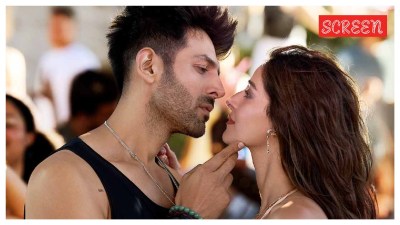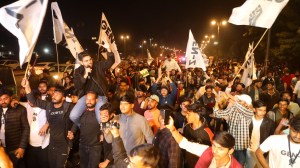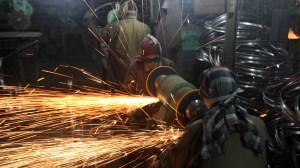How old are you?
The Chief Election Commissioner has questioned the haste with which the BJP's draft proposals on electoral reforms have been endorsed by all...

The Chief Election Commissioner has questioned the haste with which the BJP8217;s draft proposals on electoral reforms have been endorsed by all political parties. Indeed such unanimity, and the speed with which it has been forthcoming, is intriguing. It can only mean that the entire political establishment stands to benefit from them. That is no bad thing, provided it can be established that the proposals would further the cause of Indian voters and democracy as well. Still, M.S. Gill is right to say that sweeping electoral changes, some of which would require a constitutional amendment, ought to be more widely discussed and not rushed through. The proposal to introduce state funding of elections has indeed been ventilated for a long while but without yielding a consensus. The other idea, that of lowering the age qualification for MPs and MLAs, is a completely new one. As it happens, it is also by far the brighter one.
On the face of it, there is no real provocation to lower the minimum-age qualification forLok Sabha MPs from 25 to 21 years and of Rajya Sabha members from 30 to 25. And yet it is a fine step in terms of what it might mean for India8217;s creaking political culture, held too long in the grip of the over-70s. Nowhere is politics the preserve of the young, true. But India really has taken matters too far in making it the exclusive domain of the geriatric. And while this has imparted abundant Chanakyan skills to Indian politics, these have degenerated all too often into rank cynicism. The vigour and idealism of youth have been singularly lacking in India8217;s political landscape. And they have been missed. Indians need only recall the exultation they felt when someone as young as Rajiv Gandhi became Prime Minister. His fatal handicap was inexperience. A lower age qualification should give young politicians a better mix of youth and experience. In today8217;s fiercely competitive world the age barrier has crumbled in virtually every other sphere of life. It is no longer inconceivable that a twenty-somethingshould preside over the fortunes of a vast corporation. Why should politics remain off limits? In any case, it is not as if the average age of parliamentarians would drop overnight. The proposal is healthy acknowledgment that youth is to be welcomed in politics as elsewhere. As primary education spreads, literate, even educated, younger MPs and MLAs could breathe new life and vigour over time into Indian politics.
This fine proposal is, however, sufficiently offset by the bad, bad idea of state funding of elections. It has no purpose other than to spare parties the pain of fund-raising. It will needlessly and hugely burden the state exchequer. It will not check electoral corruption because parties always will try to outspend each other in elections. Mere state funding will not stop them raising funds illegitimately. Indirect funding such as free airtime to all parties is so much the better idea. It is quite remarkable that decades of state control over the electronic media did not throw it up earlier. Nowthat it has appeared, politicians want the easier option of state funding. It is easy to see why, too: money for no pain and the freedom to continue corrupt fund-raising. It surely needs nipping in the bud.
- 01
- 02
- 03
- 04
- 05































